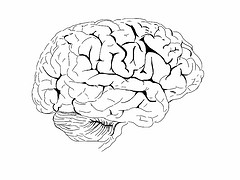Between paying bills and taking pills, it’s hard to keep up with life sometimes. We set alarms and reminders for something as simple as “call mom.” Our constant state of distraction means that tasks – especially the small ones – are left to rot, forgotten in the face of so much internet.
Some don’t have the luxury of hitting snooze on an alarm though. For diabetics, missing or doubling up on an insulin injection is a serious matter. So Timesulin came up with a solution: a cap that goes on most insulin pens that tells the user the last time they took a shot (“Timesulin,” 2014). It has all the makings of a good invention. It’s simple, affordable and potentially lifesaving.
I caught sight of it on Gizmodo, and I think it’s a much-needed device. But it got me thinking about how often we outsource our memory. It’s not a new fear or theory. It is, however, more prevalent than ever in our society. And the more we rely on other devices to hold our memories for us, the more we need to question the definition of a memory and the parameters of our retained thoughts.
We capture moments on a smart phone or camera. Some keep diaries or online blogs. Those things all contain bits and pieces of our lives, but do they mean anything without the context of a memory behind them?
Last year, scientists at MIT managed to implant a false memory into a mouse’s brain (Mehta, 2013). The implications of this is vast; in the future, Alzheimer’s could be solved with by replacing the forgotten information. Car keys may never be lost again. One scientist even joked that we could upload the vacation we never had a chance to take.
Memory is unreliable, subjective and deeply personal. As technology advances, the definition of memory begins to blur. It moves from the dictionary classification of something stored in the mind and into this realm of something that is invented and potentially kept for safe keeping elsewhere.
So I’m left wondering, where’s the line? How do we distinguish an authentic memory from an outsourced or uploaded one? Does the distinction even matter?
For many, this will be a non-issue. The future will hold what it will. But for researchers, philosophers and communicators, our understanding of memory will shape our careers. A story holds power because it drudges up an emotional response from us. We connect to an issue through our own experiences. But what happens if we’re no longer drawing from our own experiences?
It could very well lead to a better place. That doesn’t mean we shouldn’t ask questions, however.
References:
Liszewski, A. (2014, March 20). an insulin pen cap that reminds diabetics when their last injection was.Gizmodo, Retrieved from http://gizmodo.com/an-insulin-pen-cap-that-reminds-diabetics-when-their-la-1547977996
Mehta, P. (2013, August 8). Question your world: Can we plant fake memories?. National Public Radio, Retrieved from http://ideastations.org/science-matters/question-your-world/question-your-world-can-we-plant-fake-memories
Timesulin – making your diabetes insulin pen smarter..finally in the u.s.a.. (2014, March 10). Retrieved from http://www.indiegogo.com/projects/timesulin-making-your-diabetes-insulin-pen-smarter-finally-in-the-u-s-a


Really enjoyed your reading and adding critical thought to the problem’s that we all face with remembering things that are important in our lives. Thanks for sharing!
/John – CEO of Timesulin
LikeLike
This type of technology is terrific! I know a lot of insulin users and it is such a hassle to keep up with injections and remembering when you last had a dose. It has to be terrific. I wonder if my diabetic friends will check it out.
LikeLike
1) Props to you for getting noticed by the CEO of Timesulin
2) I think it’s a great invention–that is if it will truly be beneficial to diabetics. I agree, though, where must the line be drawn? It’s hard to tell…I guess it just depends on the how much benefit Timesulin will be providing. It’s a benefit>losses situation.
LikeLike
Timesulin–great use of technology to improve healthcare and make life easier for people who deal with a difficult condition on a constant basis. Implanting false memories–TERRIFYING.
LikeLike
My younger sister has Type I Diabetes, and will have to do daily injections for the rest of her life in order to maintain her blood sugar at healthy levels, so I can definitely see the benefits of Timesulin. It’s a really great idea, especially since insulin is something that can be crucial to survival for many people. And while the thought of having memories implanted in my brain worries me, I can’t say that if I had Alzheimers, I wouldn’t want a way to hold onto not just my memories, but my sense of self.
LikeLike